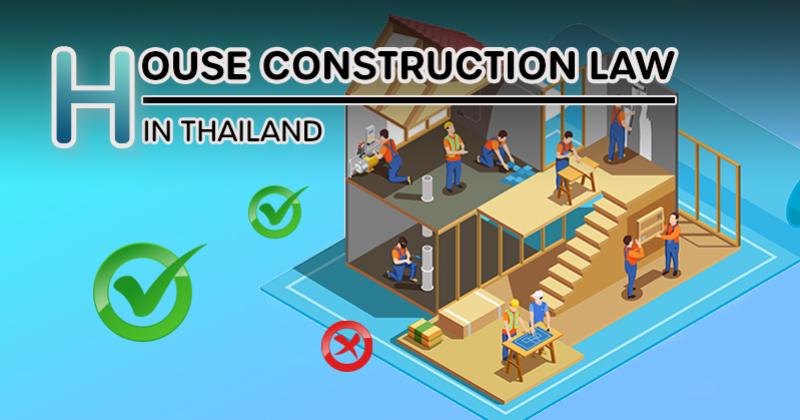
Created : 6 Apr 2023
Updated : 6 Apr 2023
How to design home decor?
There are several factors to consider when decorating a house to make it more attractive and livable, such as using colors that are suitable for the style and ambiance we want to create in the house, selecting furniture and decorations that match the desired style, and using various decorating techniques to enhance the beauty and appeal of the house. Some of these techniques include:
1.Adding green plants to your home is an easy way to decorate and create a refreshing atmosphere. Green plants or small potted succulents placed in various parts of the house such as the living room, bedroom, or guest room can make your home look fresher. Not only do plants help purify the air, but they also create a shady atmosphere that can affect your health and make you feel good. Your home will come to life and feel more vibrant with greenery.
2.Adding small decorative items to your home can make a big difference in creating a cozy and inviting atmosphere. These items don't have to be expensive or require a lot of maintenance. You can place them on small wooden shelves or display them in baskets, such as a wicker basket, a small music box, or a cute wooden doll. These small decorations can help enhance the ambiance of your home and make it feel warmer and more natural.
3. Choosing furniture colors to create warmth in your home.
If the color tone of our home is warm, such as brown, wood, or eggshell white, choosing furniture colors is important in creating a cozy atmosphere. If we choose the same color tone, it will create a light attraction and be easy on the eyes for those in the house. Or, if we choose colors that contrast with the floor color, it will create a sense of surprise and interest. However, this ultimately depends
4.Adding Light to Dark Areas if our house has areas that are quite dark or corners that are gloomy, we should provide adequate lighting to create a comfortable and convenient living environment. Therefore, it is necessary to have sufficient bright light in every room. For example, in the living room, we can add light by using a long lamp or in the workspace, we can add a small desk lamp. This will make the different rooms or corners of the house more inviting, cozy, and pleasant to be in.
Here are some examples of home decoration styles
1.Classic Style Home Decoration The bedroom in the classic style home emphasizes the use of natural materials to create a raw and genuine look, including raw bricks, red bricks, ironworks, and wooden structures. When combined, everything looks harmonious, and each piece of furniture is a vintage work of art that adds to the classic beauty of the room.
2.Decorating a home in Contemporary Style The focus is on a warm Contemporary style, mixing elements such as curtains and rugs while dividing the usage zones. Furniture is kept simple with a focus on wood materials and a sofa in Earth Tone colors.
3.Modern Style - Undoubtedly, the third style is one of the most popular home decor styles that is easy to decorate and is currently dominated by modern decor, covering everything in a cohesive color scheme, from the color of the sofa to the curtains.
4.Modern Luxury Style - For those who want to keep their home looking modern and sophisticated, but also want to add a touch of luxury, decorating in the Modern Luxury Style is the perfect solution. This style allows for a wide range of furniture color options, including black, white, grey, and bright tones, which can be adjusted to fit your personal taste. This style is especially popular for those who live in expensive condos and want to showcase their high-end lifestyle.
5.Loft Style Home Decor - Loft style has become increasingly popular lately because everything is intentionally designed to be in the original style of the word "loft". It's not just about some parts, but every wall is made of red bricks, some spots are made of bare cement, and the windows are not left empty but covered with black aluminum blinds to soften the light coming in from outside.
6.Nature Style Home Decoration – Emphasizes the natural elements as much as possible, as everything in this room is made mostly of wood. It is well known that natural style decoration is the use of natural materials in decoration. This is another idea that can make a home beautiful and warm, giving off the scent of nature.
7.Minimal Style home decoration - The main concept of Minimal Style is simplicity, comfort, and minimal decoration with only necessary items. However, it should still look stylish and follow the philosophy of "Less is More", which means "less but more effective".
8.Tropical style in home decor is similar to the nature style, but it is designed to fit countries with hot and humid climates. The style evokes a feeling of warmth and relaxation, and the decor often includes natural materials to create a relaxed and laid-back atmosphere.
9.Oriental Style Home Decoration - Oriental Style emphasizes on decoration that conveys the culture through various works of art and decorations that reflect the beliefs of that particular culture, such as feng shui and cultural beliefs. The exterior of the house may be adjusted to suit modern times while still maintaining the essence of Oriental Style. It is important to remember the cultural beliefs that have been passed down through generations in order to maintain the true essence of this style.
10.Vintage Style Home Decoration – Vintage Style is another popular home decoration style that has gained a lot of popularity nowadays, especially among women who love the scent and fashion of the past. This style of home decoration often uses furniture with light wood tones, and for curtains, Infinity Design recommends using blue-colored curtains with patterns to create a comfortable and relaxing atmosphere.
11.Home Decoration in Luxury Style – Let's talk about luxury and expensive decor. Normally, a simple and luxurious style would focus on using gold, white, or cream tones, but for this house, the theme is bold and all black with a mafia-style luxury touch. However, if you look closely, the centerpiece is the bed with Versace wallpaper in black and gold. The black wooden bed frame is tall and comes with a thick, soft mattress.
12.Home Decor in Warm & Cozy Style - This style is easy to decorate and creates a comfortable living space. It is commonly found in colder regions as people want to make their homes feel warm and cozy. The décor focuses on natural tones, making it easy on the eyes with an Earthy color palette. You don't need a lot of decorations, just what is necessary to create a good overall look.
These simple home decoration ideas may help spark inspiration for decorating your home, even if it's just a little bit. Decorating your home is not as difficult as you may think, so to enhance the ambiance of your already great home, all you need to do is start small, from inside your home to the outside. By doing so, your home will have a relaxed and warm atmosphere, inviting a calm and peaceful state of mind.
ขอขอบคุณข้อมูลจาก: https://www.infinitydesign.in.th
: https://www.usfurnish.com

